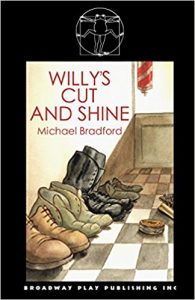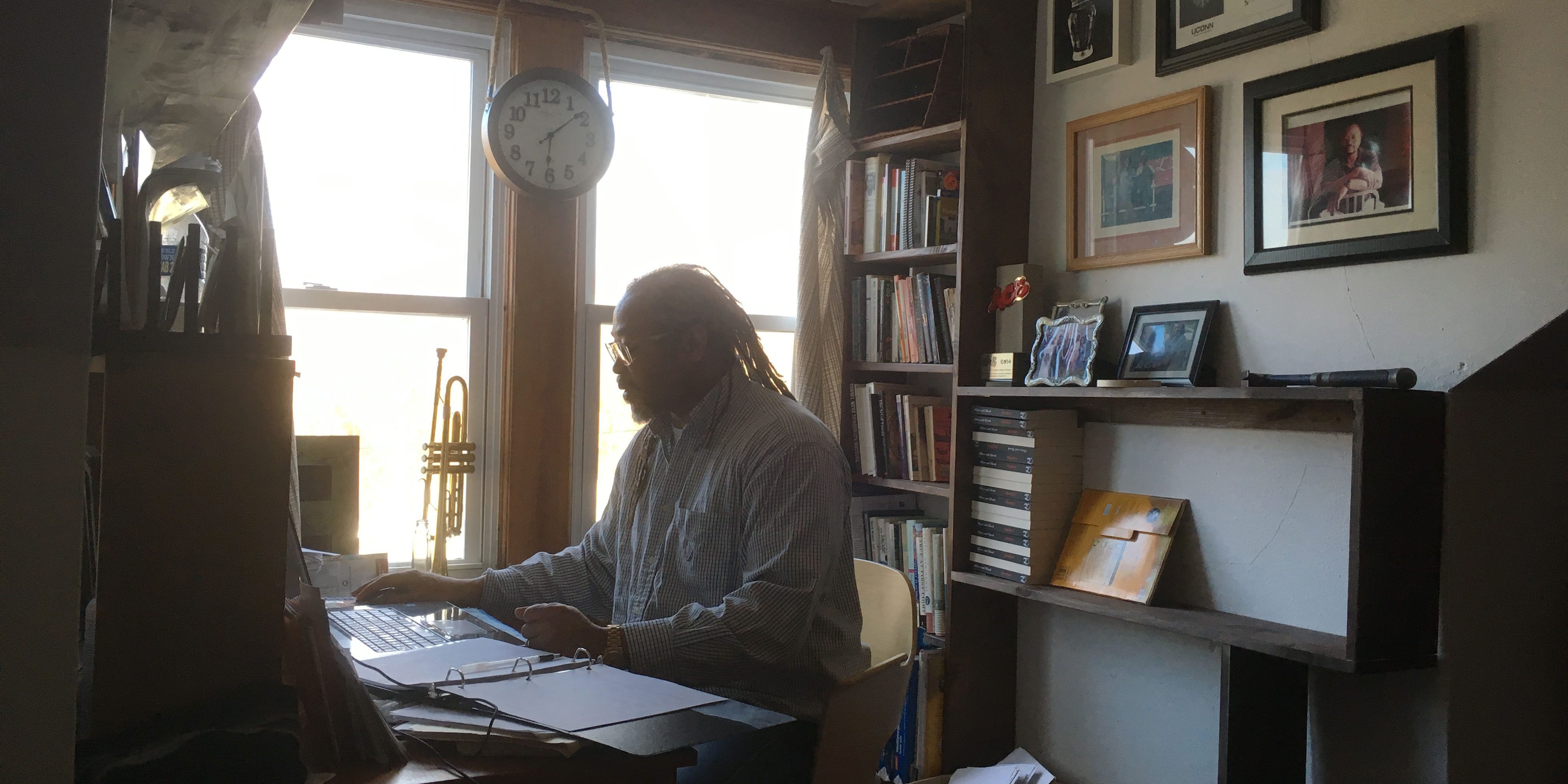Michael Bradford, Department Head of Dramatic Arts, Artistic Director of Connecticut Repertory Theatre, and professor at the University of Connecticut, is an award-winning playwright. Bradford’s work has been produced Off-Broadway at the American Place Theatre, and elsewhere in New York at the Lark Developmental Theatre, The Flea, The Access, and the NADA Theatre. Bradford is considered one of the most promising African American playwrights today.
What keeps you inspired when you’re writing plays?
I would say life in general keeps me inspired. I’m fascinated by life, people, and history. If something strikes me to start writing, I’m always interested to continue the story. I’m sure other writers may know where the story is going, but I don’t particularly know where it’s going to go so I’m curious myself how it will all end. I normally begin to write because I’m interested in a historical moment or an aspect of somebody’s life and that I want to investigate.
What was the process of gaining confidence in your writing?
I used to come in with a play for review, and when there would be suggestions or questions about the play, I would do a significant rewrite in one night. I did not have a very good ear for what belonged to me. If somebody had an issue or a question, I assumed I needed to fix it. It took a while to convince me that not every comment about my play was valid.
It takes operating at a different level as far as production is concerned. I came to UConn for my undergraduate degree, and thought I’ll get a degree in English, teach high school English, write plays in the summer, and I’ll be happy. Then, I was able to go to graduate school. I thought, well if I get a play produced at a community theater, then I’ll be happy. Well that happened. Then I said, well, if I get a play produced Off-Broadway, then I’ll be happy. And it goes on. Each time I’ve been able to feel like I’ve gone a little bit better at this. I haven’t mastered it, but I’ve gotten a little farther, and that gives me the juice to want to do it again.
 What was your creative process when writing Willy’s Cut and Shine?
What was your creative process when writing Willy’s Cut and Shine?
Before I came to the university, I had been in the Navy for ten years as a military, six as an electrician on submarines and four as a military policeman. Once, I was at a gas station and the gentleman across from me was an older African-American man with a Navy “Dolphins” hat on, which is the insignia that you get when you’re qualified to be on submarines. I asked him if he was on the submarine on his hat, which was the World War II submarine, and he said yes. I began to think about how I was an electrician on a submarine, and the only job available to African Americans when he was there was a cook or a porter for the captain. Our lives were very much different, but so much of what he went through paved the way for my experience. This made me think of African Americans during World War II. How people go to fight for democracy and return to a country that is not democratic for them, but they spent their sanity and blood fighting for that democracy. This country was psychologically fabricated and and needed to took a moment to look at itself.
How do you feel about your writing career thus far?
I want to be a very good writer and I would love audiences to think about my plays and comment on my work. I want to have a career in professional theatre, and I’ve been fortunate enough to have a bit of that career, though as a professor it’s not easy to spend the time necessary stay in the national spotlight. I’m pretty satisfied with where I am as a playwright in this country. My plays are normally different, genre and structure wise. I’m not interested in writing the same type of play twice. So one play is realistic, one play is absurd, another is post-modern, and that’s not really how you have a career as a playwright. Not to mention I love my job as a professor. I just keep working, and the plays happen how they happen. When I have the opportunity to produce and theaters call, I’m happy with that as well. I think that if I thought “I should be more well-known, I should be famous,” that would actually get in the way of my writing. I’m a writer and you do what you are if you are lucky. This should be my total concentration—being in my writing room, sitting at my desk, and writing to the best of my ability. Just focus on the work and let everything else take care of itself.



